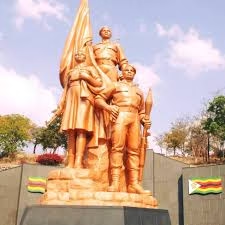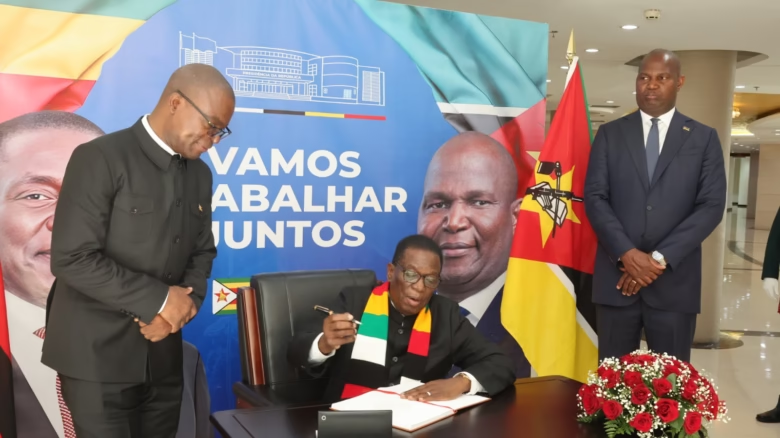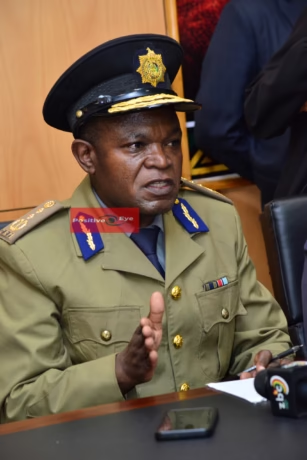
Nearly half a century after the triumph of Zimbabwe’s independence, the echoes of the liberation struggle still linger in the hearts of those who gave their all yet remain unrecognized. In Parliament, a long-overdue dialogue has resurfaced, breathing new life into the voices of men and women whose sacrifices built the foundations of freedom. The Portfolio Committee on Defence, Home Affairs, Security Services and War Veterans’ Affairs has presented a report that answers the petition from the Zimbabwe National Association of Liberation War Veteran Cadres, who are seeking justice, identity, and full acknowledgment under the Veterans of the Liberation Struggle Act.
The petitioners called upon Parliament to amend certain provisions of the Act, arguing that it fails to fully capture the depth of their contribution during the liberation struggle. They challenged the use of the phrase “did not get military training,” insisting that it distorts history and paints them as passive participants when, in truth, they endured the same hardships as those who fought on the frontlines. Many of these cadres crossed borders into Mozambique and Zambia, underwent rigorous drills, mastered guerrilla tactics, learned intelligence operations, and lived under the same daily risks as their comrades. Their grievance was not merely a legal debate but a cry from the forgotten corners of the nation’s memory where honour has been delayed by words.
The Committee acknowledged the truth in their appeal, observing that non-combatant cadres were indeed trained and performed essential duties such as logistics, intelligence, and communications during the war. It agreed that the phrase “did not get military training” should be replaced with one that reflects the reality that they were trained but were not deployed to the battlefield due to circumstances beyond their control. Such recognition, the Committee noted, would restore dignity and correct an omission that has long stood between justice and the rightful narrative of Zimbabwe’s liberation.
However, the discussions also revealed the complexity of reform. The Ministry of Veterans of the Liberation Struggle Affairs, supported by the War Veterans League, emphasized that any redefinition must remain faithful to the Constitution, which recognizes three distinct categories of veterans, those who fought, those who assisted, and those who were detained or restricted. The Ministry cautioned that altering this framework would require broader constitutional engagement. The War Veterans League further expressed concern that blurring these categories might distort the established order of recognition, where liberation war fighters remain the principal actors in the nation’s independence.
Yet beneath the constitutional arguments lies a deeper moral urgency. The report revealed that while over 150,000 war collaborators and nearly 11,000 non-combatant cadres were vetted between 2022 and 2024, their names are still to be published in the Government Gazette. This delay has deprived them of pensions, medical care, and other benefits due to them under Section 84 of the Constitution. The Committee noted that this inaction breaches the provisions of the Act, which require publication of vetted names twice a year. As a result, many cadres live in poverty, battling illness and old age, while some have passed away without receiving the recognition they were promised.
The Committee’s recommendations reflected both empathy and resolve. It urged the Ministry to amend the Act’s definition of non-combatant cadres to align with historical accuracy and human truth. It insisted that the three categories of veterans should remain as recognized in the Constitution, ensuring that each group’s legacy is preserved with integrity. It further directed the Ministry to publish the vetted lists by the end of September 2025, and for the Ministry of Finance, Economic Development and Investment Promotion to allocate funds in the 2026 budget for lump-sum payments to all qualified veterans, to be completed by December 2026.
The report goes beyond administrative correction; it is a moral compass guiding the nation toward gratitude and fairness. It recognizes that time is running out for those who once marched through the forests of Mozambique and the valleys of Zambia with nothing but hope and courage. Many have waited decades for the state to honour its promise. The Committee’s voice is, therefore, not just a policy statement but a national reflection that justice delayed must not become justice denied.
If the recommendations are fully implemented, they will not only bridge historical gaps but also reaffirm the sacred bond between the nation and those who birthed its freedom. The liberation struggle was not fought by a few; it was sustained by many hearts that beat for a single dream. Parliament’s response, though late, carries the weight of remembrance. It reminds Zimbabwe that independence is more than a story in the past; it is a living debt owed to every veteran whose courage made the nation possible.




